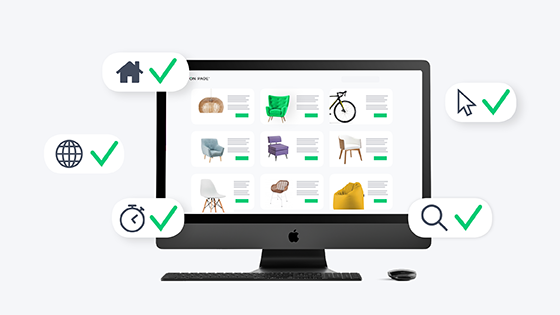5 advantages of adopting a B2B Product Information Management PIM

A PIM Product Information Management for B2B is a product information management software dedicated to B2B companies that,
with thousands of products in the catalog, they need to organize data in a functional and effective way.
For companies that make a finished product or distribute it on the market, the use of a product management software, it is no longer an option, it is necessary. It is no longer sustainable today to spend time and resources to collect, organize and publish manually
the product information in a loop that is repeated at each edition or update. It makes no sense to write the same information over and over again in different destinations and then waste resources chasing updates, errors and typos.
5 points for which you need to adopt an PIM
Let’s find out together what are the concrete advantages of using a B2B Product Information Management PIM:
- Transform data, even unstructured, into useful information; a photo, a measure, a drawing, a price, a code, a variant have no sole value, but are transformed into a heritage when they are logically aggregated, when the overall view tells the product to our audience and to us themselves.
- The authors of the product information are always different, department marketing, technical department, R&D, sales, all competent for their area. Assigning role and responsibility to individual authors, beyond stimulating efficient teamwork, avoids giving an inappropriate role of all-rounder to marketing, which in the end will pay all the consequences of drafting incorrect, out-of-date or inconsistent information.
- The technologies to automatically layout even on the InDesign standard have existed for at least twenty years, but we have never been able to take advantage of them because the lymph was lacking to power these systems; organized product data. Adopting a product management software means having the information in a single source and then automatically paging without having to worry about writing or pasting information and checking its consistency. To reveal numbers beyond all the advantages of publishing consistent and secure information, automatic pagination spends about 2 seconds / machine per page, compared to the hours we sometimes dedicate to paging, checking and revising 1 page paginated manually.
- 98% of companies today in marketing work in an absolutely unstructured way, in a typical context this means that the company is committed to producing catalogs, price lists, technical data sheets, product sheets, web sites, e commerce, marketplaces … in all forms linguistics of their markets. Trivially, if a company has only 200 products in 3 languages, it means that the change of just 1 piece of information will cause maintenance work on 28 distinct positions, which translated in time would lead to approx. 7 hours of valuable marketing work stolen from value-added activities (strategy, web, social, etc.)
- Many fill their mouths with miraculous strategies in reference to digital transformation, but few pause to reason that until we refine the energy to easily travel through the new digital communication channels, digital revolution will only be a theory … a bit like enhancing hydrogen cars and having only one distributor throughout the country.
Other articles that
may interest you


